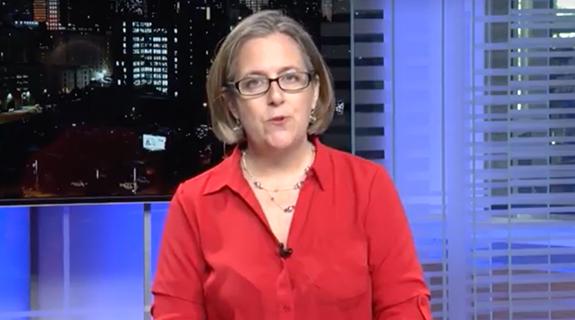“Our kids are growing up in an environment…where everything is contested that nothing is true, because if it’s on Facebook, it all looks the same.” – President Obama regarding media literacy on HBO’s Real Time with Bill Maher
During an insightful interview with Bill Maher last week, President Obama clearly communicated the need and importance of media literacy education in our society, and acknowledged that when it comes to what has been done so far, “…our political system doesn’t help.”
As vice president of the National Association for Media Literacy Education (NAMLE), I couldn’t agree more. The flood of endless analysis that’s ahead of us on how Trump won and how Clinton lost is virtually unfathomable. Rest assured there will be continued talk of racism, sexism and the economy. Whatever that discourse is, I am confident we will also fall witness to the unfortunate results of a media illiterate society.
Not being able to credibly judge the information received as false or true might not have been the final reason someone selected their chosen candidate, but it certainly is a concerning factor of the amount of fake media that spread like wildfire during this election season. Have we become complacent of the information that passes before our eyes, rather than thinking critically about whether if it’s worthy of a like or a share?
As media practitioners, producers and literacy advocates, it is our civic duty to create a dedicated united front that adds focus to the blurred line between entertainment and news.
“If you’re reading something from a Nobel Prize winning physicist next to some guy in his underwear in his basement, or texted, it looks like it’s equally plausible,” President Obama went on to explain. He further concurred that we need to do a better job “…if our democracies’ function in a complicated diverse society like this is to teach our kids enough critical thinking, to be able to sort out what is true and what is false, what is contestable and what is incontestable…we seem to have trouble with that.”
This information avalanche is not coming to a stop any time soon, and with that are challenges and opportunities. Media today offers new relationships between the creator and consumer where community involvement is the norm. It is the loudest influence in our lives. However, its endless stream of information is making an indelible imprint on the innocent minds of our children, and it is up to us to ensure this happens responsibly and wisely.
Moving forward, it’s best to stand united, for divided we fall. Media literacy education can be a path to civil discourse and a democratizing force to unite us all.
Rather than spend too much time on what has happened, let’s spend our time on “what’s next?” And for NAMLE—and hopefully for you—what’s next is media literacy education. For every child. For every person. For our democracy.
As a nation we need to unite and work together to get louder and fight to have these essential skills presented in every household and taught in every classroom in every school in the U.S. No longer can media literacy be a “nice to have” option in the classroom. It needs to be integrated across all core curriculum as new forms of reading and writing we communicate through in the 21st century.
NAMLE is a non-profit organization and its membership is free. As our new U.S. president beseeched last night, we too are “reaching out to you for your guidance and your help so that we can work together and unify our great country.”
Please join our organization today at www.namle.net and help us to grow a media literacy movement that empowers people to access, analyze, evaluate and create media safely, wisely and responsibly.
Our kids deserve it. Our country deserves it. So do you.
RELATED: Virtual Graffiti in the Read-Write City
Erin Reilly is managing director and research fellow at USC’s Annenberg Innovation Lab. She is a graduate of Emerson College and has her Masters of Fine Arts degree from Maine Media Workshops + College. She is a member of the Academy of Television Arts & Sciences, vice president of NAMLE (National Association for Media Literacy Education) and serves on advisory boards, such as Disney Junior and PBS Emmy-award winning SciGirls. Reilly presents and consults with companies in the areas of audience engagement, creative strategy, media literacy and the future of media and entertainment.
Tags:













































__twocolumncontent.jpg)











